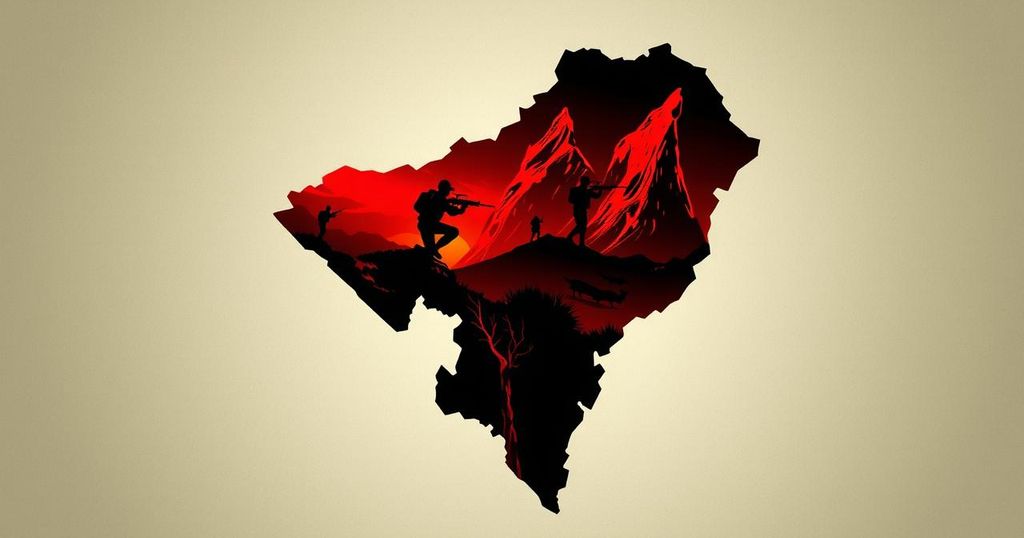M23 rebels are advancing towards Bukavu after capturing Goma, prompting a military mobilization by the DRC government. Tensions rise as the Defense Minister rejects negotiations while rebels signal willingness for dialogue. Backed by Rwanda, M23’s aim is political power amidst a humanitarian crisis exacerbated by ethnic conflicts originating from the 1994 Rwandan genocide. Regional leaders are working towards resolving the situation amid growing instability.
M23 rebels, having captured significant areas around Goma, are reportedly progressing towards Bukavu, the provincial capital of South Kivu, thereby inducing fear among local residents. The situation has escalated tensions in the region, prompting the President of the Democratic Republic of Congo to initiate a large-scale military mobilization against the rebels, which his Defense Minister has firmly affirmed against pursuing negotiations.
The DRC’s Defense Minister remains steadfast in the fight against the M23 rebels, who currently control the eastern city of Goma, a region housing over six million people who have been displaced from their homes due to persistent conflict. In response to calls for dialogue, the rebels have expressed willingness to engage with the government, as proposed by the East African regional bloc of which Rwanda is part, yet they maintain their objective of gaining political power.
Rwanda’s President, Paul Kagame, has confirmed discussions with Angola’s President, Joao Lourenco, acting as a mediator in the ongoing conflict. After a meeting with the DRC leadership, both presidents have committed to collaborating with other African nations to find a peaceful resolution to the hostilities. The M23 group is estimated to have around 4,000 Rwandan troops supporting their endeavors.
Amidst the turmoil in Goma, reports indicate a significant humanitarian crisis; dead bodies litter the streets, rampant looting occurs, and residents face severe shortages of electricity and water. The roots of the M23 conflict trace back to ethnic hostilities originating from the 1994 Rwandan genocide, which has left a lasting impact on relations between Hutus and Tutsis in the region. M23 claims to be defending the Tutsi population within Congo, while Rwanda alleges persecution against them by Hutus.
In contrast to the 2012 uprising, observers suggest that M23’s potential withdrawal, should the situation deteriorate, may prove to be increasingly complex. The rebel group, empowered by Rwandan support, is driven by frustrations over the DRC’s alleged disregard for regional interests and its failure to adhere to prior peace agreements.
The conflict involving M23 rebels in the Democratic Republic of Congo (DRC) is deeply entrenched in historical ethnic tensions and geopolitical complexities. The M23 group emerged from a backdrop of ethnic conflict stemming from the 1994 Rwandan genocide, where a significant number of Hutus sought refuge in Congo. This ongoing strife has given rise to over 100 armed factions battling for control in the mineral-rich eastern DRC, a region crucial for global technology supply chains. The dynamics between the DRC and Rwanda further complicate the conflict, especially with accusations of Rwanda backing the M23 rebels to safeguard Tutsi interests in Congo.
The M23 rebellion signifies a critical escalation of violence in the eastern DRC, with regional implications linked to historical ethnic conflicts and foreign intervention. As M23 strives to assert control and political power while the DRC’s government adopts a militarized response, the humanitarian situation continues to deteriorate. Efforts by neighboring nations to mediate the conflict highlight the urgent need for a collaborative resolution amidst rampant violence and instability in the region.
Original Source: www.vaticannews.va




